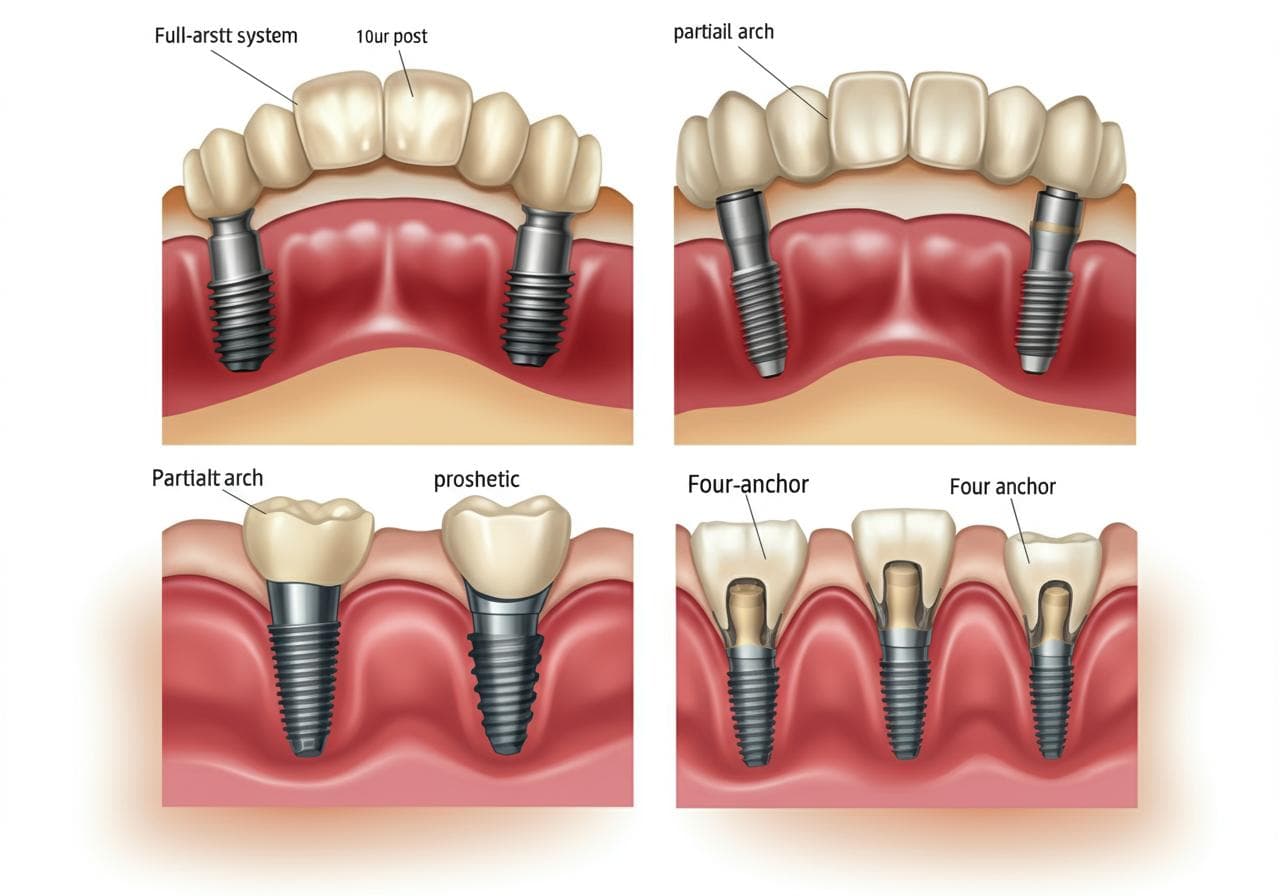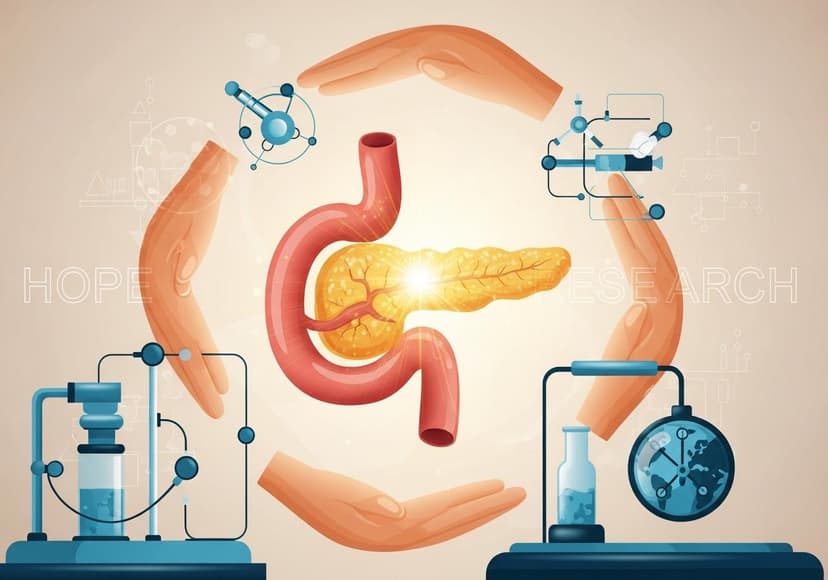4 Dental Implant Procedures A Comprehensive Guide
Dental implants offer a permanent tooth replacement solution. This guide details four key procedures involved.

Research topics
Dental implants have revolutionized the field of dentistry, providing an effective way to restore missing teeth. Among the various types of dental implant procedures, the 4 dental implants explained method stands out due to its efficiency and effectiveness. In this comprehensive guide, we will explore the four-post dental system, partial arch implant options, dental quadrant restoration, and the four anchor technique.
What Are Dental Implants?
Dental implants are artificial tooth roots, typically made of titanium, that are surgically implanted into the jawbone. They serve as a foundation for replacement teeth or bridges. The procedure can significantly enhance the quality of life for individuals suffering from tooth loss by providing restored functionality and an aesthetically pleasing smile.
The Four-Post Dental System
The four-post dental system is a popular implant technique that utilizes four strategically placed implants to support a full arch of replacement teeth. This system is particularly advantageous for patients who may not have enough bone density for traditional implants, as it relies on fewer implants for greater stability. The implants are placed at precise angles, ensuring maximum support for the prosthesis.
The placement of four implants allows for a quicker healing time and often results in less postoperative discomfort. Moreover, patients can usually receive their permanent teeth on the same day of the surgery, making it a time-efficient solution for many.
For additional information on the all-on-4 technique, you can refer to this guide.
Partial Arch Implant Options
Not everyone requires a full set of dental implants; thus, partial arch implant options become essential for those with missing teeth in specific areas of the mouth. These implants are designed for patients missing several consecutive or non-consecutive teeth and utilize fewer implants to secure a prosthetic tooth or bridge in place.
The use of partial arch implants also addresses the aesthetic concerns of patients while maintaining functionality. Patients can restore their smiles without the need for cumbersome dentures or complex jaw surgery. The restoration can occur in just a few visits, making it a practical solution for those with busy lifestyles.
For more detailed insights on partial arch implants, please check this resource.
Dental Quadrant Restoration
Dental quadrant restoration refers to the process of restoring a quadrant in the mouth, which consists of either the upper or lower left or right section. This restoration utilizes dental implants to replace missing teeth within that specific quadrant. It is ideal for patients with significant tooth loss localized to one section of the mouth.
The benefits of quadrant restoration include a more straightforward procedure, reduced costs, and less time in the dentist's chair. Just like with partial implants, quadrant restoration allows patients to avoid full dentures while receiving permanent teeth that feel and function like natural teeth.
If you are interested in learning more about the dental quadrant restoration process, you can explore the information available at this link.
The Four Anchor Technique
The four anchor technique is a specialized approach within the broader four-post system. This technique provides an enhanced level of stability for patients with significant bone loss. It involves placing the implants in locations that utilize the strongest bone tissues, effectively anchoring the prosthesis securely.
By anchoring the prosthetic teeth to four strategically positioned implants, patients receive a robust structure that can handle the pressures of everyday functions like eating and speaking. The procedure is minimalistic compared to installing multiple individual implants, making it less invasive and more appealing for those hesitant about surgical procedures.
Who Is a Candidate for Dental Implants?
Dental implants are suitable for a wide range of patients, but certain criteria must be met for successful implantation. Candidates should generally be in good health and have sufficient jawbone density. Individuals who smoke or have underlying health conditions such as diabetes may face additional challenges, but they can still be considered on a case-by-case basis. A consultation with a dental professional is essential for assessing eligibility.
Preparing for Your Dental Implant Procedure
The preparation phase for dental implants typically involves several steps: an initial consultation, imaging tests like X-rays or 3D scans, and a discussion of personalized treatment plans. These preparatory steps ensure that your dental professional has all the necessary information to provide the best outcome.
It is crucial to communicate any medications or supplements you’re taking to your dentist since they may affect the healing process. Following the pre-operative guidelines provided by your dental team can significantly enhance recovery and procedures' overall success.
Aftercare and Maintenance
After receiving dental implants, patients must follow a thorough aftercare regimen to ensure long-term success. This may include prescribed medications to manage pain and prevent infection. Regular dental check-ups are vital as they allow for professional cleaning and monitoring of the implants.
Good oral hygiene is key for patients with implants. Brushing, flossing, and using mouthwash regularly contribute to healthy gums and surrounding tissues, helping extend the life of dental implants.
Conclusion
Understanding the various dental implant procedures is essential for anyone considering tooth replacement options. The four-post system, partial arch implant options, dental quadrant restoration, and the four anchor technique each offer unique benefits tailored to specific needs. If you are contemplating dental implants, consult a qualified dental professional to determine the most suitable option for your condition.
Posts Relacionados

000 Gift For Pancreatic Cancer Research
Pancreatic cancer research receives a substantial donation, aiding in the fight against this deadly disease.

000 Gift To Dana-Farber For Pancreatic Cancer Research
Pancreatic cancer research receives significant boost as generous donation of $000 made to Dana-Farber.

1Md Probiotics What Are The Side Effects
Reviews suggest potential side effects, including digestive issues; benefits, like improved gut health, may vary.